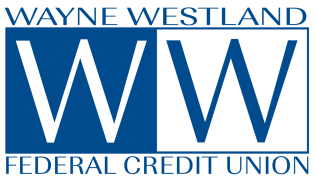Personal loans are rife with pitfalls. Used correctly, they can save a significant amount compared to payday loans, overdrafts and pawnshops. However, there are many unscrupulous lenders who may try to bleed you with fees and high interest rates. Here’s how to find the best personal loans without paying too much.
What’s my credit score?
Since you aren’t putting up any collateral, the loan terms will be based on your creditworthiness – your credit history, your income and what other debts you have. Be sure to check your credit history and score for any inaccuracies before applying.
Pro tip: If you don’t know your credit score, check it for free by signing up for a credit monitoring service and cancelling during the grace period.
If you have good credit, you can probably get a personal loan at a decent rate with your current bank. If you have less-than-perfect credit, don’t be tempted by “no credit check” offers. Payday lenders often charge exorbitant rates and can often be avoided.
Where should I get a personal loan?
You can get personal loans from any number of institutions:
- Banks
- Credit unions
- Payday lenders
- Peer-to-peer lenders
- Credit building groups
Your best bet is probably your local credit union. Because they’re not-for-profit, they can charge lower rates than for-profit banks; federally chartered credit unions have limits on the rates they’re allowed to charge. Even if you have less-than-perfect credit, credit unions can help: many have payday loan alternative programs that provide loans at the lowest price to people who’d otherwise be denied.
Another good option is peer-to-peer lending groups like LendingClub and Prosper. While the rates might be a bit higher than those at credit unions, you may find it easier to qualify. Remember that these companies are for-profit, compared to not-for-profit credit unions. If you’re really in dire straights, consider a credit building nonprofit that will get your finances back on track. The Credit Builders Alliance can help you find a program in your state.
Pretty much all personal loans require income verification (such as a W2 or pay stub) and identification (such as a passport or driver’s license); some ask for bank statements or tax returns.
Finding the lowest rates
Here are a few tips to finding the best loan.
Compare your options. Is a personal loan cheaper than a low-interest credit card? If you have good credit and can pay off the loan in 12-18 months, you can probably get a credit card that has 0% interest on purchases for a year or longer. Take a look at credit unions, too, before going with banks.
If you have bad credit, find a co-signer. Having a co-signer with good credit allows you to piggyback off of their creditworthiness and potentially get better rates. However, use this option only if you trust the co-signer completely, as any mismanagement goes on your record as well as his.
Consider a secured loan instead. If you have a house, consider using it as collateral in order to get lower rates. A home equity loan or home equity line of credit can often be cheaper than a straight-up, unsecured personal loan. Keep in mind that using your home as collateral means that if you default, you could lose your home.
Pay off as much of your credit card balance as you can before you apply. The outstanding balance on your credit card – even if you pay it off at the end of the month and never pay interest – counts against you when a lender runs a credit check.
Borrower beware: What to watch out for with personal loans
Unsecured lending can attract unsavory players, but even with the squeaky-cleanest of lenders, it pays to keep an eye out for gotchas.
Prepayment penalties. When a lender tries to estimate how much money they’ll make off your loan, they usually assume that you’ll pay interest until a certain date. Paying off the loan too soon – and therefore limiting the interest you pay – screws up their calculations. In order to keep their numbers straight and pockets lined, some charge a fee for paying off the loan before a certain date. Such fees are called prepayment penalties or exit fees. Be sure to look for the words “no prepayment penalty” on your loan term when you apply.
“Optional assistance” and other fees. If you grant the lender permission to withdraw from your checking account, they might take out so-called “optional” feesthat you never heard of. The lender can automatically deduct them from your account, potentially causing your checking account balance to go negative.
Accidental overdrafts. Again, if you link your loan to your checking account for automatic payments, you might be in danger of an overdraft. Overdraft fees can run $35 a pop, and they can quickly add up. It’s harder to know that you have a low balance in your checking account if the lender deducts your payment behind the scenes. To avoid this, consider:
- Opting out of automatic payments
- Setting up a low balance alert with your bank
- Signing up for a third-party service like Mint that offers low balance alerts
Scam artists. Though many lenders are honest and goodhearted, a look through literature will show that usury has been around since man walked upright. Payday loans, in particular, tend to attract the bottom of the humanity barrel. Before you sign up for any loan, particularly online, check out the Better Business Bureau and Federal Trade Commission to make sure the organization is legit.
H/T Source: NerdWallet, Inc.


